TOI Lifestyle Desk
/ etimes.in / Updated: 31 Jul 2024, 10:42:33 PM
AA
Text Size
- Small
- Medium
- Large
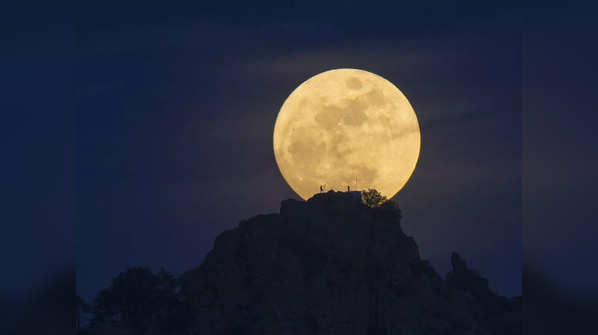
1/8
These images will take your breath away
The Moon has always fascinated humanity, and NASA has captured some of the most breathtaking images of our celestial neighbor. These images not only showcase the Moon’s beauty but also provide valuable scientific insights. Here are some of the most stunning pictures of the Moon shared by NASA’s Astronomy Picture of the Day (APOD).
Image: Dani Caxete/NASA
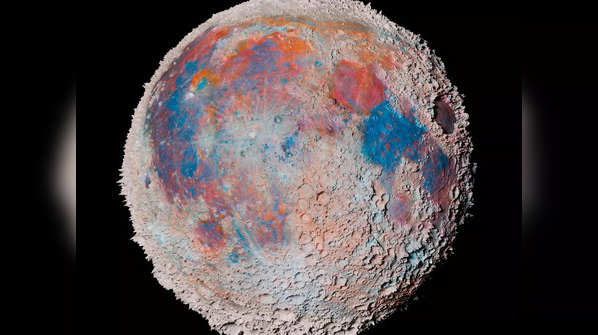
2/8
Exaggerated Moon
One of the most striking images from NASA’s APOD is the “Exaggerated Moon.” This digital composite, created using data from NASA’s Lunar Orbiter Laser Altimeter (LOLA) mission, accentuates the Moon’s craters and highlands. The image, featured on January 16, 2023, uses exaggerated colors to highlight different regions, with blue indicating iron-rich areas and orange showing aluminum-rich regions. This enhanced view helps illustrate the Moon’s geological history and the impacts it has endured over billions of years.
Image: Ildar Ibatullin/NASA
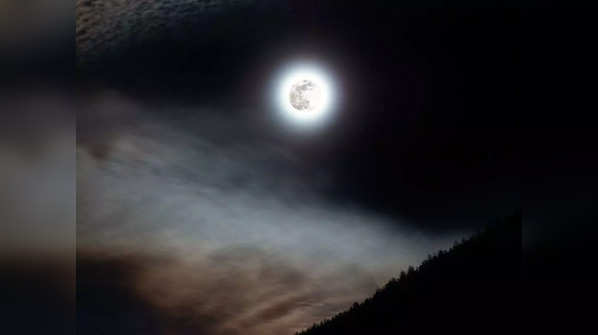
3/8
A January Wolf Moon
On February 13, 2024, APOD featured an image titled “A January Wolf Moon.” This photograph captures the Full Moon rising over the Italian Alps, with clouds creating the illusion of a wolf’s mouth ready to swallow the Moon. The January Full Moon is traditionally known as the Wolf Moon, named by Native American tribes for the howling wolves during the winter months. This image beautifully captures the eerie and majestic sight of the Wolf Moon in a winter landscape.
Image: Antoni Zegarski/NASA
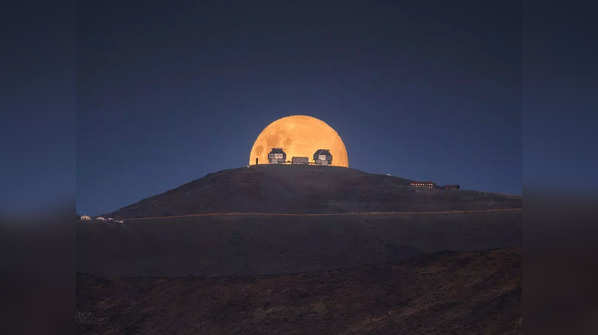
4/8
Full Observatory Moon
APOD’s January 27, 2024, entry features an image titled “Full Observatory Moon.” This photograph shows the Full Moon rising over Las Campanas Observatory in the Chilean Atacama Desert. The image, taken with a telephoto lens, captures the Moon’s bright glow against the rugged terrain and the observatory’s twin 6.5-meter diameter Magellan telescopes. This dramatic Earth-and-moonscape highlights the intersection of natural beauty and scientific exploration.
Image: Yuri Beletsky/NASA
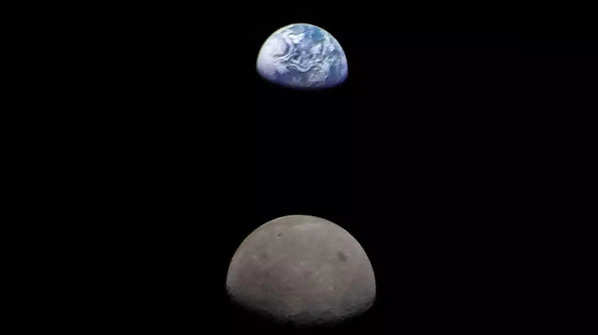
5/8
Earth and Moon from Beyond
On January 24, 2024, APOD featured an image titled “Earth and Moon from Beyond.” This photograph, taken by the Orion spacecraft during NASA’s Artemis I mission, shows the Earth and Moon from a unique perspective beyond the Moon. The image captures the familiar duo with Earth appearing larger due to the spacecraft’s proximity to the Moon. This unusual view provides a striking reminder of our place in the cosmos and the vast distances between celestial bodies.
Image: Andy Saunders/NASA
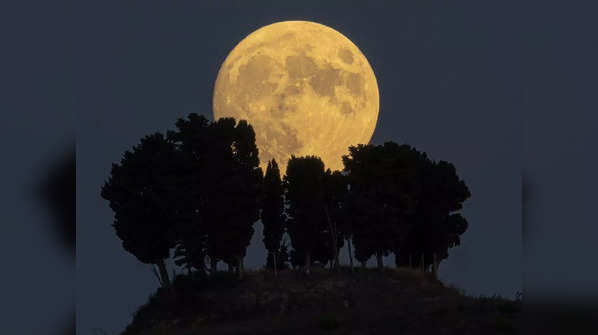
6/8
A Harvest Moon Over Tuscany
APOD’s September 30, 2023, entry, “A Harvest Moon Over Tuscany,” showcases the Full Moon rising behind cypress trees in Tuscany, Italy. The image, taken on September 28, captures the warm hues of the Harvest Moon, traditionally the Full Moon nearest the autumnal equinox. This photograph reflects the cultural significance of the Harvest Moon, which historically allowed farmers to work late into the night by its light.
Image: Antonio Tartarini/NASA
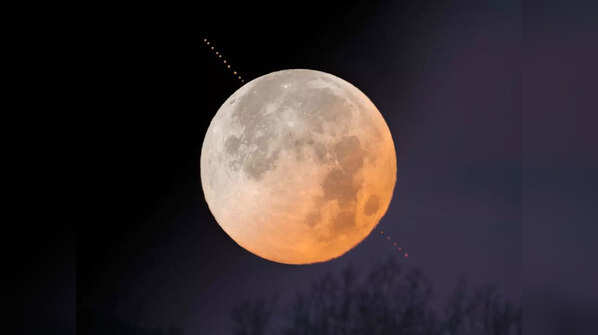
7/8
Full Moon, Full Mars
On December 15, 2022, APOD featured an image titled “Full Moon, Full Mars.” This photograph captures the rare event of a Full Moon and a Full Mars appearing close together in the sky. Taken from Kosice, Slovakia, the image shows Mars being occulted by the Moon just before sunrise. This celestial alignment provides a stunning visual contrast between the Moon’s soft glow and Mars’s bright, reddish hue.
Image: Tomas Slovinsky/NASA

8/8
A Blue Banded Blood Moon
APOD’s December 1, 2021, entry, “A Blue Banded Blood Moon,” presents a high-dynamic-range image of a lunar eclipse. Taken from Yancheng, China, the photograph shows the Moon with a red hue, known as a blood moon, and a distinct blue band caused by Earth’s atmosphere. This image highlights the complex interplay of light and shadow during a lunar eclipse, creating a visually striking and scientifically intriguing phenomenon.
Image: Angel Yu/NASA
FOLLOW US ON SOCIAL MEDIA